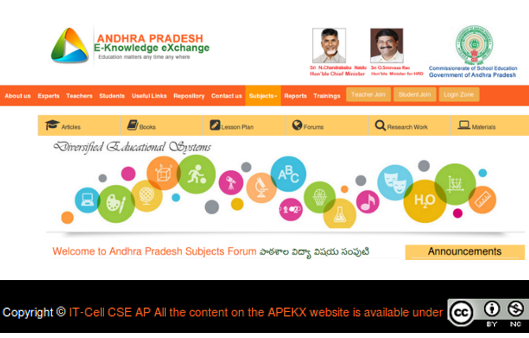A free and open technology environment* is essential to support participation and shared ownership, pre-requisites for a democratic and equitable information society. ITfC has consistently advocated with public institutions, including governments, academic institutions and civil society organizations to adopt open licensing for the resources created by them. In many cases, these institutions use the default 'All rights reserved" copyright clause, or do not specify any copyright clause (which leads to the same outcome, since by default, any resource has the 'All rights reserved" copyright, unless explicitly changed. Hence when they are made aware that if they release their resources explicitly or implicitly under the traditional copyright, their readers and audiences would not be legally be allowed to further disseminate the resource, they usually agree to release the content under an open license.
ITfC's advocacy includes engaging with these organizations apprehensions relating to 'misuse' of the content by others, including commercial use, or 'spoiling' the quality with derivatives and clarifying the various licensing options available, including under Creative Commons.
Many resources released on web-sites and through e-newsletters have been licensed as OER pursuant to such efforts.
ITfC also believes that the default copyright, in the case of publicly funded creation programs, should be open and is keen to engage with others working in this space for a revision to copyright law to make this possible.
*Free and Open Source Software (FOSS), or 'public software' is the 'software' component of such a free and open technology environment. Open Educational Resources (OER) is the 'content' component of such an environment.

